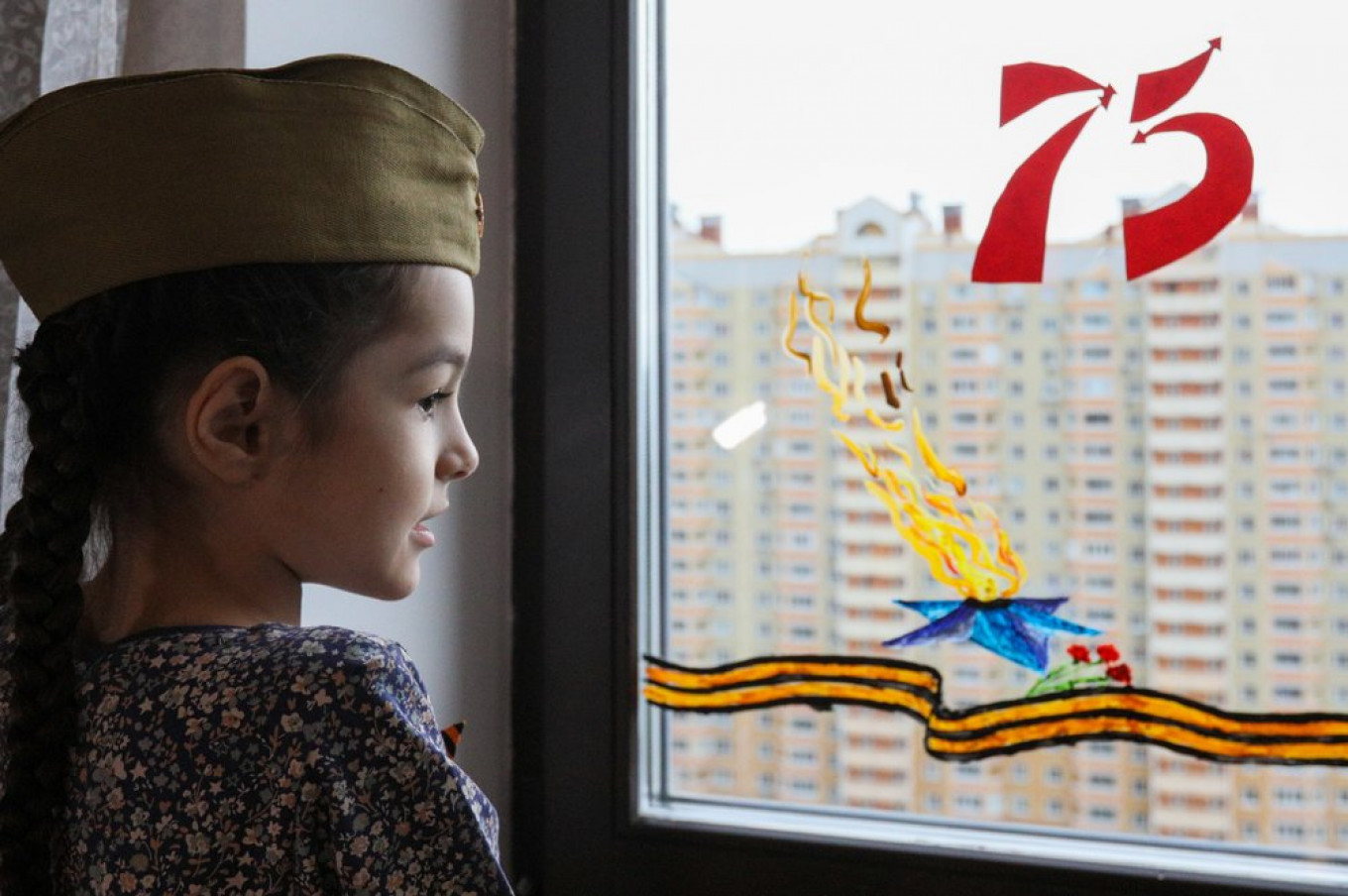
Once when I was comparing Moscow and St. Petersburg in a column for this newspaper, I wrote that the Russian capital is not as easily understood or straightforward as its northern neighbor and needs a bit of explaining so that a visitor can accept it.
Victory Day celebrations in Russia also require some explanation. Seventy-five years after the war ended, the way the date is commemorated and discussed is unprecedented. This might seem a bit strange from a foreign point of view — after all, we’re dealing with a military event, a purely textbook matter for many people in the world today.
But if you start to look for an explanation, it’s not hard to discover why remembrance is so important in Russia. The scale of suffering and terror that the country endured during the war is beyond description. Every single family in the country was affected. Millions didn’t return from the battlefields or perished in concentration camps. Men, women and children lost their homes in cities and villages and had to flee or were killed. Half of the western part of the country lived under Nazi occupation for several years. Devastation was so immense that traces of destruction remained for many decades, long after the war.
But despite the enormity of the battles fought on Russian lands and their profound, long-lasting impact, this part of the war was somehow not common knowledge in the West. There were many reasons for this, but post-war politics were mainly to blame, as well as the firmly established separation of the Soviet Union from the flow of international news. The war on the Eastern Front had slipped into oblivion.
But thanks to some periods of thaw in the Cold War, information broke through. In 1978 Americans produced a legendary 20-episode television series called “The Unknown War” based on the extraordinary documentary footage taken by Soviet film crews during the war and preserved in the archives. The series was all the more powerful because the producers asked Burt Lancaster, a trusted figure, to host it and deliver its message to households across the U.S. I once had a conversation with Oliver Stone, who said the documentary had a great influence on his filmmaking.
Inside Russia, the memory of events has also had its own history — with political fluctuations and ups and downs.
Seventy-five years after the war, controversies about some episodes are not yet resolved. The debates about the beginning of the war and the tragic first months in 1941, the reasons for the unprecedented 900-day siege of Leningrad and on other events still continue, not the least because they are connected with the semiofficial interpretation of Stalin’s role as an “efficient” leader of the country during the war and throughout the years of his rule. Discussions fueled by political opportunism are not mere academic disagreements.
In the 1970s, I worked at a popular newspaper as the war was fading from public attention, eclipsed by other more recent events. Our unstated approach was to write about the war years without great shows of bravado. We tried to use a simple tone when speaking to veterans and portrayed the war from an ordinary soldier’s point of view, not the vision of a general.
We tried to focus on the hardships and enormous personal losses. We looked for stories about duty carried out, the quiet, every-day bravery of men and women who didn’t think of future glory. Ordinary citizens, young and old, most without experience, military training or sufficient weapons, different in their political and religious beliefs, all volunteered to go to the front in a display of unity, with a sense of duty and the determination to defend their homeland.
Sadly, these real soldiers have grown scarce, as more have passed away each year. And so, the first days of May before the holiday always seemed to fly by. We had the uncomfortable feeling of time slipping away. We knew that the precious opportunities to hear first-hand accounts of what the country endured during the war were gradually disappearing.
From our parents we inherited the spirit of joy that their families had felt on the very last day of the war. But at the same time, we viewed this special period in May more as a moment of respectful silence and reflection, humbled by the ordeal and human suffering that the older members of our families had gone through. Today some shout “We can do it again!” But in those days the motto was “Never again.” A new war was unthinkable.

Leave a Reply